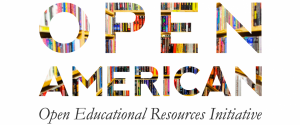Summary
MyOpenMath was born out of free, open source software developed by David Lippman, a community college math professor in Washington State, starting in 2005. With a little grant support and a lot of his free time, David ran a state-wide installation of that software at wamap.org. Faculty from around the state got involved, and collaboratively contributed much of the question content now found on MyOpenMath. Out of Open Course Library project in Washington, several complete courses based on open textbooks were created. Other folks got involved, including James Sousa from Phoenix College who contributed a huge collection of questions tied to his video examples.
In 2011 David started MyOpenMath as a way to share with the world this software system and all the great content that had been built around open textbooks. He self-funded the site for the first year, then joined forces with Lumen Learning, who had been using MyOpenMath with the Kaleidoscope Project. Lumen now hosts the MyOpenMath site, and leads continued content development, with plans to provide the full arithmetic-through-calculus sequence in MyOpenMath using open textbooks.
While Lumen Learning now funds MyOpenMath, the development of IMathAS and the content has been supported by several grant projects as well as the time, effort, feedback, suggestions, and dedication of its users. Grants from the Washington State eLearning Council and the Transition Math Project helped develop the platform and create a large set of content.
Courses developed for the Washington State Open Course Library project are a basis for many of the open courses found on MyOpenMath. Others were contributed by faculty, including James Sousa from Phoenix Community College. Many of these courses were improved by contributions and feedback from faculty involved in the Kaleidoscope Project.
The courses that are offered through MyOpenMath are Pre-algebra, Beginning and Intermediate Algebra, Pre-calculus for College Algebra and Trigonometry, Trigonometry, and Calculus. They can possibly be offered as a supplement to other courses for students that need a refresher on this particular material.
